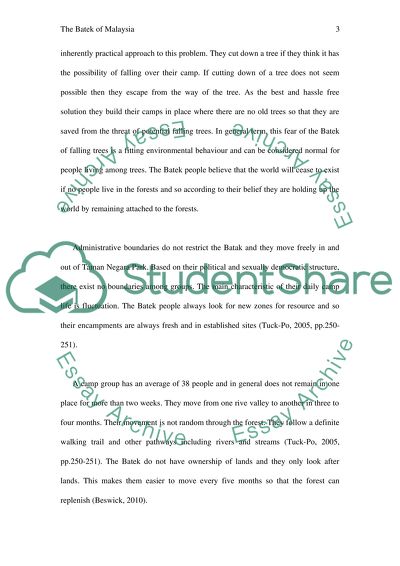Cite this document
(“The Batek of Malaysia Research Paper Example | Topics and Well Written Essays - 1500 words”, n.d.)
Retrieved de https://studentshare.org/anthropology/1391122-the-batek-of-malaysia
Retrieved de https://studentshare.org/anthropology/1391122-the-batek-of-malaysia
(The Batek of Malaysia Research Paper Example | Topics and Well Written Essays - 1500 Words)
https://studentshare.org/anthropology/1391122-the-batek-of-malaysia.
https://studentshare.org/anthropology/1391122-the-batek-of-malaysia.
“The Batek of Malaysia Research Paper Example | Topics and Well Written Essays - 1500 Words”, n.d. https://studentshare.org/anthropology/1391122-the-batek-of-malaysia.


